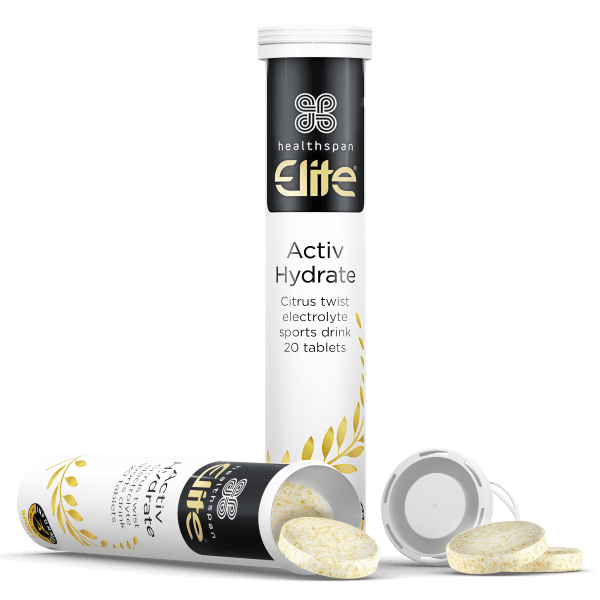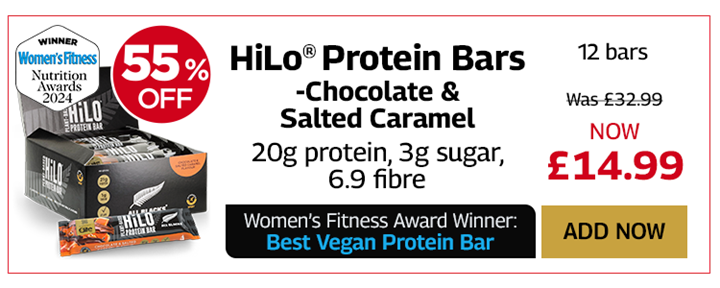Optimise your performance on race day by following our advice for before, during and after the event, from energy boosting to hydration to recovery.
Before the race: how to train
When training for endurance, such as a 10k run or a half marathon, there are four main areas that contribute to your overall level of fitness.
1. Aerobic exercise
This type of exercise focuses on your heart and lungs, and the ability of these organs to pump oxygen and blood into your muscles. Try wearing a heart rate monitor, so you can keep a check on your heart rate. Aim to stay in your optimum aerobic level (55 - 60% of your maximum rate).
2. Anaerobic exercise
This type of exercise focuses on short bursts of activity with the absence of oxygen present. This allows you to sustain a specific intensity level for a short period of time. This type of exercise is useful for strength, speed and power, preferably used when there is a change in terrain, such as hill running.
3. Hit the weights
This type of exercise focuses on working against resistance to develop the strength and endurance of muscle groups. Hit the gym to strengthen your muscles, helping you run those longer miles.
4. Run, rest, repeat
This type of exercise is the ability to prolong the amount of time where a near-maximal speed can be maintained over time. 400m interval training (running as fast as possible then resting, then doing it again) can help improve your speed endurance.

Consume foods that are high in carbohydrates such as porridge with banana, muesli, or whole-grain toast with poached eggs or nut spread. All these foods contribute to energy production throughout your workout.
- There is evidence to suggest that caffeine may enhance performance by reducing the role of perceived exertion.
- A teaspoon of instant coffee contains around 60mg caffeine, which takes about 30 minutes to absorb.
- Caffeine in the form of gum can be absorbed much quicker by the body, and should take 10-15 minutes before you feel the benefits.
During the race: staying hydrated
The benefits of hydration, and how water can assist the body during a race.
1. A sharper brain
A 2017 study found that drinking just 300ml of water (roughly just over half a small standard bottle) can boost attention span by nearly a quarter.
2. Temperature regulation
Make sure you stay hydrated during the race, as this will help prevent overheating, which could cause you to pass out or become ill. The European Food Safety Authority (EFSA) recommends that for every 45 minutes of exercise you should take on an extra 200ml of water.
3. Better joint health
Your joints are surrounded by cartilage (made up of around 80% water), which helps create the sponginess needed to cushion them and stop them grating and rubbing. If your joints feel stiff and achy, this could potentially be a sign that you are not drinking enough water.
4. Energy boost
Water is needed to keep your energy levels topped up. So, if you are feeling tired or dehydrated, make sure you monitor your water intake to keep up your energy levels.
5. Enhanced performance
Without water, your muscles can't contract effectively, become more prone to cramping, and might struggle to repair themselves when you have finished the race. Keep a measured sports bottle handy to monitor your fluid levels.
Foods high in water
It is suggested that 70 - 80% of our hydration intake should come from drinks, and 20 - 30% from food. Choose foods with high water content like juicy fruit, and vegetables including watermelon, celery, cucumber, radishes and apples.
Replacing lost electrolytes
Electrolytes are nutrients that conduct electricity when mixed with water. They contribute to regular nerve and muscle function, balance blood pressure, help rebuild damaged tissue and keep you hydrated.
Healthspan's Elite Activ Hydrate is the perfect sports drink for when you are running a 10k, as it replaces electrolytes lost through sweat and so helps keep you hydrated.
After the race: running recovery
Caring for your muscles after running a race is a must. A combination of exercise, sleep and nutrition will work wonders.
Foam rolling
Like a massage, foam rolling eases and soothes sore muscles and allows you to target troubled muscles specifically. For optimal results, try to foam roll every day or as often as you can. It will help to promote blood circulation, which will help remove waste products and release any tension.
Sleep
Adequate levels of sleep help mental health, promote hormonal balance, and provide time for muscular recovery. Studies have shown that athletes that have higher amounts of sleep have improved performance, compared to those who get less. The optimal amount should be between 7 - 10 hours.
Olympic medallist and Healthspan ambassador Iwan Thomas gives some tips on how to help your body recover after training.
Food your aching muscles will love
Your body is particularly receptive in the 30 - 35 minutes after exercising, and this is the critical time for nourishing it.
In a 2010 study carried out on recreational marathon runners given either concentrated tart cherry juice or a placebo, the cherry drinkers reported improved muscle recovery. They were found to have less damaged muscles immediately after the race, had lower levels of inflammation, and recovered muscle strength quicker.
Eggs contain all nine essential amino acids (the building blocks of protein), which help to reduce muscle damage in the body. The yolks also contain anti-inflammatory omega 3 fatty acids and a small amount of immune-boosting vitamin D.
A 2012 study on blueberries shows how these antioxidant and anthocyanin-rich little dark berries are bursting with nutrients that help to accelerate recovery in muscle function and strength.
Let supplements help
Healthspan Elite Performance Cherry contains a concentrated amount of natural nutrients including anthocyanins, antioxidants and flavonoids. The cherries also contain melatonin, the sleep hormone.
Research has shown whey protein supplementation helps athletes with muscle recovery and building lean muscle mass. This type of protein, found naturally in milk, is rapidly absorbed and contains a high percentage of amino acids including all essential amino acids and leucine.
Leucine is an important player in muscle protein synthesis, the process in which the body repairs and regenerates muscle. Try Elite All Blacks Ultimate Whey Protein Blend to enable this muscle-building process to take place.

Elite Activ Hydrate
Delicious fruit-flavoured electrolyte drink to replenish minerals lost during exercise
- Replenishes the essential electrolytes sodium, calcium, magnesium and potassium
- Contains 300mg sodium
- Informed Sport-accredited








